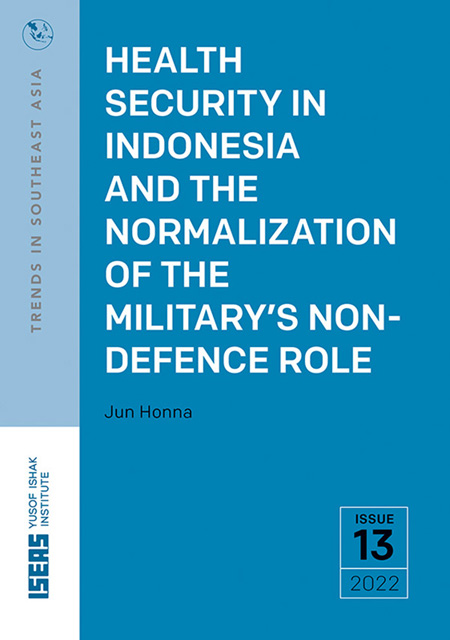Health Security in Indonesia and the Normalization of the Military’s Non-Defence Role
Published online by Cambridge University Press: 30 June 2023
Summary
INTRODUCTION
Military engagement in non-military affairs in response to global health threats has become prominent since the outbreaks of poliovirus (2014–17), Ebola, and Zika (Carlin et al. 2021). However, military activism in non-defence arenas may have a negative impact on democratic governance, especially when soldiers are mobilized for domestic policing. But what is it that motivates leaders to mobilize military forces to deal with health crises? Likewise, what is it that motivates the armed forces to engage in public health control?
There are two views in discussing these questions. Some analysts argue that it is a matter of utility in a country where state capacity is limited. They argue that leaders, in order to effectively deal with the complex challenges of a health security crisis, must mobilize all available resources, civilian or military, to maximize the government’s performance (Chretien et al. 2007; Downie 2012; WHO 2021). According to this argument, the military obeys a call-out order as its professional commitment. Others, meanwhile, argue that military mobilization under the pretext of a health emergency is a shady form of health securitization, which largely reflects a political leader’s ambition to extend emergency powers and consolidate populist/autocratic legitimacy in the country (De Waal 2014; Pinheiro de Oliveira 2016). Here, the military is understood to be an active agent of authoritarian ambition. Today there is a growing literature that recounts the military-backed autocratization under the COVID-19 pandemic and which advances this argument (Passos and Acácio 2021; Grzebalska and Maďarová 2021).
The two models mentioned above are of course not mutually exclusive. What we need is a more nuanced approach that allows us to analyse cases where military involvement in health security cannot be easily explained with the help of these models. Indonesia is obviously such a case. Beyond the models, I am interested in investigating the civil-military dynamics of what Wenham (2019) refers to as “securitizing health” and “healthifying security”. Through the investigation, I provide an alternative explanation for Indonesia’s case. In doing so, I examine how military engagement in health security during the COVID-19 pandemic has been exercised by President Joko Widodo (2014–), popularly called Jokowi. I discuss how it has been used as a political instrument by the president to gain the loyalty of military elites.
- Type
- Chapter
- Information
- Publisher: ISEAS–Yusof Ishak InstitutePrint publication year: 2022



